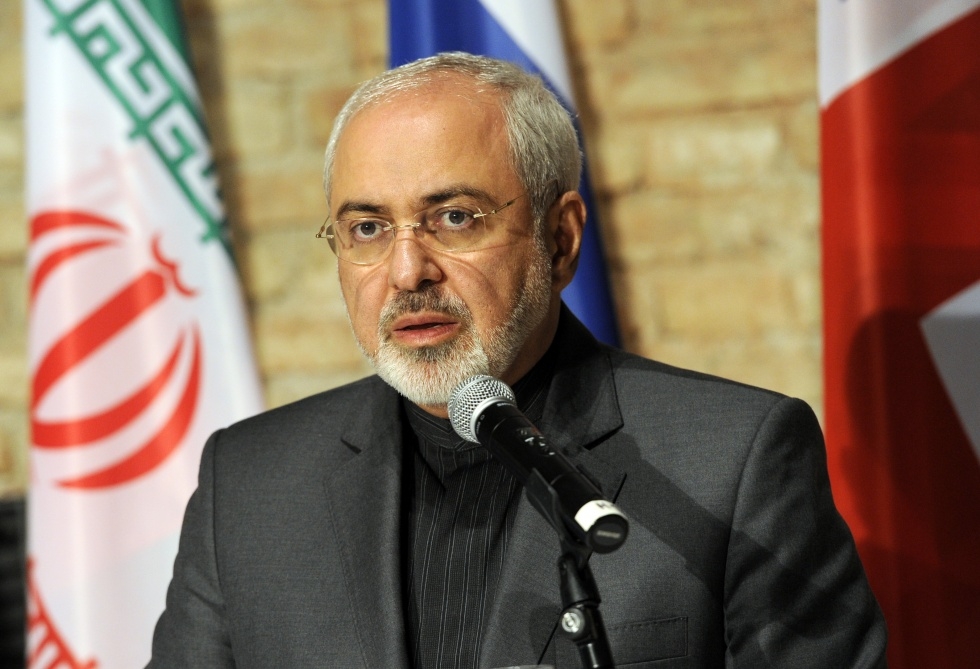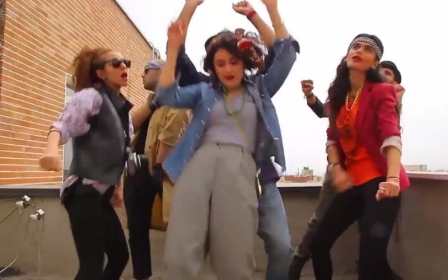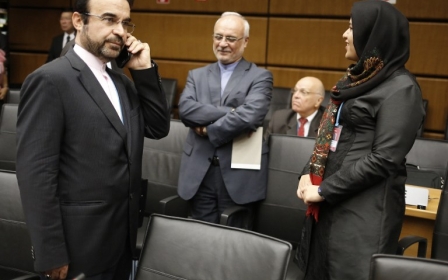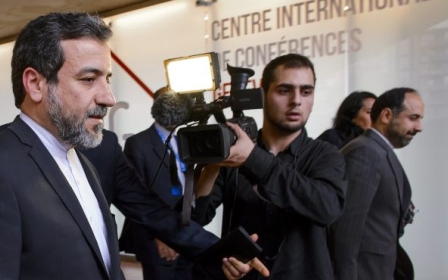Iran, six powers head into 'very tough' nuclear talks

Iran and six powers returned to the negotiating table on Friday with only two months left to overcome hurdles in the way of a deal on curbing Tehran's nuclear program.
No major breakthroughs are expected at the talks, which are to continue until the end of next week, but the pressure is on both sides to find ways to narrow the gaps.
EU foreign policy chief Catherine Ashton sat down with Iranian Foreign Minister Mohammad Javad Zarif at the UN headquarters to kick off the talks, with negotiators from six powers of the so-called P5+1.
It was the first meeting between Iran and P5+1 - Britain, China, France, Russia, the United States plus Germany - since July, when they decided to extend the deadline for a deal to November 24.
But, on the eve of the talks, a senior US administration official downplayed expectations, warning: "It's tough, very tough."
"Coming into New York, I think many of us were not optimistic," said the official, who asked not to be identified. "But it is clear that everyone has come here to go to work."
Iran has long denied it is seeking to develop a nuclear bomb, but the West is demanding Tehran agree to monitoring while scaling back production of fissile material that could be used for bomb-making.
Negotiators say there are major hurdles to overcome but that holding talks in New York on the sidelines of the UN General Assembly will allow for some high-powered diplomacy to come into play.
A ministerial-level meeting of the P5+1 with Iran is expected next week and US Secretary of State John Kerry is scheduled to hold bilateral talks with Zarif.
Last year US President Barack Obama held a historic phone call with Iranian President Hassan Rouhani, the first direct talks since the 1979 Islamic Revolution, but no contact is planned this time around.
Both leaders face strong domestic pressure to take a hard line on the nuclear issue, which had been a diplomatic headache for more than a decade until the process sprung into life last year.
"This is an opportunity, because everybody's here," said the US official. "So we ought to make use of that to try to deal with all of these tough issues."
The meeting at UN headquarters is held against the backdrop of a US-led campaign to confront Islamic State (IS) fighters in Iraq and Syria, where Iran wields influence as a key regional power.
German Foreign Minister Frank-Walter Steinmeier said the nuclear talks were entering a "crucial phase".
"There is no more room for Iran to play for time. We are willing to offer Iran a fair deal. However, for that to happen, Iran will need to move on the core issues.”
Preventing 'break out'
Western nations agreed to lift some sanctions against Iran last year in exchange for agreement from Tehran to curb some nuclear activities and to get to work on a comprehensive agreement.
Negotiators failed to meet a deadline of 20 July, but all parties agreed to extend the agreement to November in the hope of getting a final settlement.
While the sides have not ruled out the possibility of another extension, the focus is clearly on beating the clock with a deal by the end of 24 November.
The main sticking point remains Western concern over Iran's capacity to enrich uranium, a process that can make fuel for peaceful nuclear uses but also the core of an atomic bomb.
Discussions have revolved around scaling back Iran's uranium enrichment capacity to prevent Tehran from "breaking out" and producing a nuclear weapon.
Ahead of the meetings in New York, US Under Secretary of State Wendy Sherman, the lead US negotiator, warned Iran to get serious about negotiating, saying the status quo was not acceptable.
"We remain far apart on other core issues, including the size and scope of Iran's uranium enrichment capacity," Sherman said.
Iranian Foreign Minister Mohammad Javad Zarif, however, remained hopeful a deal could be reached – even before the November deadline.
“If the other parties to the nuclear talks are prepared to make a tough decision, it is possible to reach a comprehensive deal even before 24 November,” he said at a meeting on Friday with his Norwegian counterpart Borge Brende in New York.
The International Atomic Energy Agency (IAEA) also announced on Friday that Iran has until now complied with the interim deal struck last year with the P5+1.
The IAEA monthly briefing said Tehran had used “some higher-grade enriched uranium in oxide form to produce fuel as per the agreement with the six countries.” The report added that Iran “has begun preparatory work for diluting more than four tonnes of uranium gas enriched to up to two percent.”
New MEE newsletter: Jerusalem Dispatch
Sign up to get the latest insights and analysis on Israel-Palestine, alongside Turkey Unpacked and other MEE newsletters
Middle East Eye delivers independent and unrivalled coverage and analysis of the Middle East, North Africa and beyond. To learn more about republishing this content and the associated fees, please fill out this form. More about MEE can be found here.




